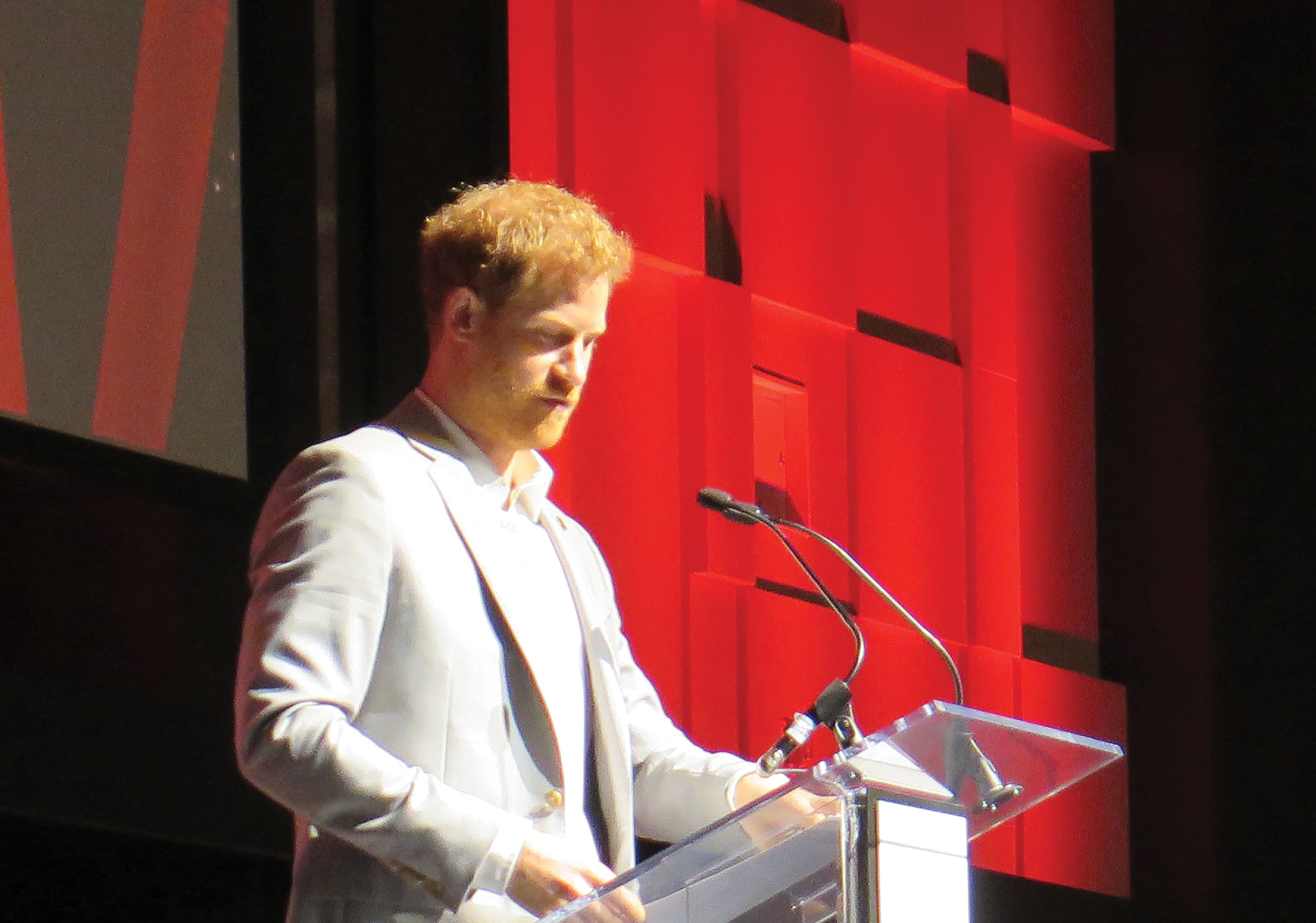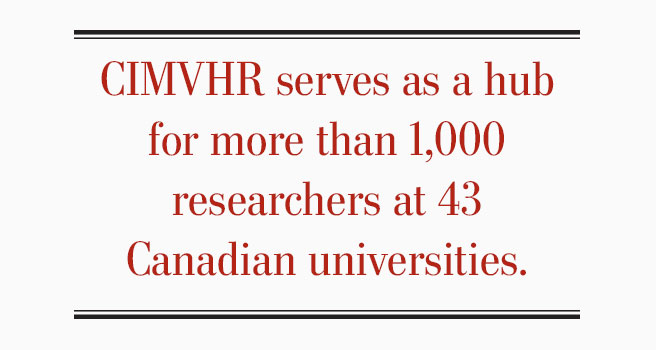
Prince Harry addresses the forum. [Sharon Adams]
The Canadian Institute for Military and Veteran Health Research (CIMVHR) forum had a royal guest—Prince Harry, patron of the Invictus Games, the international adaptive sports competition for military and veterans living with serious wounds, injuries and illness.
The Invictus Games, he said, help “reignite qualities worn down by months and often years of fighting” to find a purpose, reconnect with family, get fit again, and in some cases, stay alive.
“The Games not only change lives,” said Harry, “but save lives. And now that’s backed by high-quality research.”
Some of that research was among the nearly 200 presentations made at the 2017 CIMVHR forum, held in tandem with the third Invictus Games in Toronto in September.
The Games can be a transformative experience for competitors, said Celina Shirazipour of Dalhousie University, who reported preliminary results of a study on the role of adaptive sport in rehabilitation. About 200 competitors as well as family members were involved in the study which focuses on competitors before, during and after the Games.
“The Games are a gift to competitors in their recovery,” said Shirazipour. Training helps them reintegrate socially and rebuild their identity and confidence. The Games provide a goal, and research points to the importance of maintaining goals after the games end—and underlines the importance of ongoing involvement of family, friends and community.

“We have some key knowledge gaps in whether and how benefits are maintained in the long term,” she said. Further research will reveal how to ensure lasting benefits from the psychological boost the Games provides.
“Everyone here understands the value of research and the need to have scientific data to inform decisions,” said Veterans Affairs Minister Seamus O’Regan. It is vital to evidence-based practices, policies and programs.
CIMVHR serves as a hub for more than 1,000 researchers at 43 Canadian universities, as well as international partners, working together to assess health needs of serving military, veterans and their families.
The 600 delegates also heard personal experiences of veterans who have benefited from research, including that of Warrant Officer Mark Jones of the Canadian Armed Forces Joint Counter Explosives Threat Task Force.
Only recently has research exposed the compound effect of multiple blast exposure, said Jones. He and his team defused more than 65 improvised explosive devices in six months in Afghanistan in 2008-09, frequently suffering “nitro headaches,” disturbances to vision, nausea and touchiness, unaware these were signs of brain blast injury. Now, thanks to research and education, explosives technicians understand traumatic brain injury—what they call “breacher’s brain”—and report symptoms and seek help.
The future of military and veteran health research relies on attracting young people to the field—and that means funding their work. The Royal Canadian Legion provides an annual $30,000 scholarship in veteran health research to a master’s level academic.
“Such research can help shape policy and programs to help our military and veterans transition to civilian life,” said Dominion President Dave Flannigan, who presented the 2017 award to Kelly Chen-McDonagh of Queen’s University. She is investigating benefits of psychiatric service dogs and companion dogs for military members with PTSD.
The ninth CIMVHR forum will be held in Regina, Oct. 15-17, 2018.
Advertisement


















